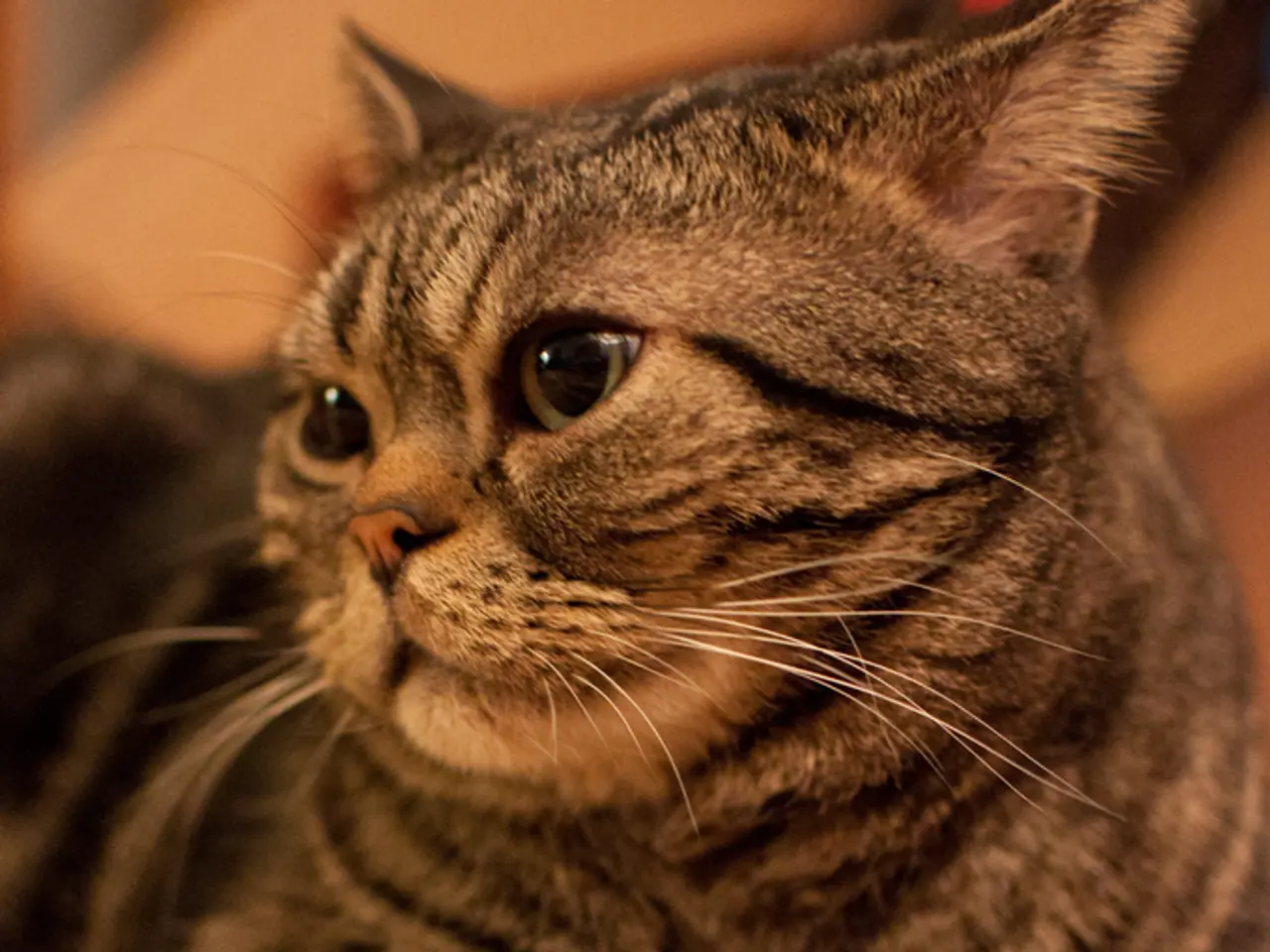Excessive Feline Vocalization: What Causes Cats to Meow Frequently?
Reducing Excessive Meowing in Cats: A Guide for Cat Owners
Cats are known for their distinctive meows, but excessive vocalization can become a source of frustration for cat owners. Understanding the reasons behind your cat's meowing and addressing those needs can help reduce excessive meowing.
Cats meow for various reasons, such as hunger or thirst, seeking attention, stress or anxiety, boredom, illness, or cognitive dysfunction in older cats [1][3][4]. To reduce excessive meowing, it's essential to ensure basic needs are met. Keep food and water bowls filled and accessible [1][3].
Providing attention and playtime is also crucial. Engage your cat in interactive play and affectionate petting to reduce boredom and attention-seeking meows [1][3][4]. Cats thrive on routine, so maintaining a consistent routine can help reduce stress-related meowing [3][5].
Minimizing environmental stressors is another key factor. Loud noises, furniture rearrangements, or new pets can cause anxiety, leading to excessive meowing [1][4][5]. Avoid reinforcing meowing by not rewarding it with food or attention immediately, as this can reinforce the behavior [3].
For senior cats, cognitive dysfunction might be causing vocalization. Consult a vet for supplements or treatments that may help [3][4]. If meowing is new or unusual, let a vet check for illness or pain such as urinary problems, hyperthyroidism, or other health issues [4].
Regular interaction, puzzle feeders, and toys can also help reduce excessive meowing. If a vet finds no medical cause for excessive meowing, consider using a pet sitter for long periods away, making environmental changes, or remembering that your cat might be meowing because it misses you.
Cats' behavior may change due to factors such as a new pet, a move, or spending time alone. Some cat breeds, such as the Siamese, are naturally more vocal. An outdoor cat enclosure or cat door can provide safe exploration and potentially stop excessive meowing.
A cat might meow at night if it needs more stimulation during the day. Indoor-outdoor cats may meow to gain access in or out, especially if their routine has changed. To reduce excessive meowing, ensure access to food, a clean litter box, and a full water bowl.
In summary, understanding your cat’s specific reasons for meowing and addressing those needs—while minimizing stress and avoiding unintentional rewards of excessive vocalization—are keys to reducing excessive meowing [1][3][4][5].
- Science and technology can help address mental health issues in cats, as researchers are developing devices to monitor cats' behavior and vocalization patterns, which could help cat owners understand why their cats are meowing excessively.
- Adopting a health-and-wellness lifestyle that considers the environment can help reduce stress and anxiety in cats, by ensuring a quiet, consistent, and comfortable living space, free from loud noises or sudden changes.
- Incorporating a pet-friendly lifestyle that includes pets like cats can lead to a better understanding and appreciation of our feline friends' needs, as understanding their meowing patterns can help cat owners provide them with the attention and care they crave, reducing excessive vocalization.




